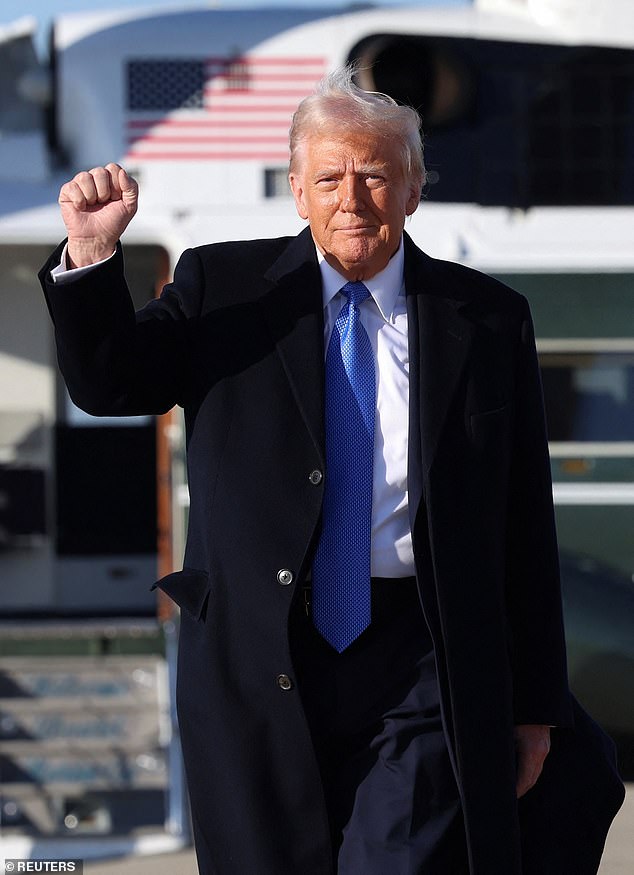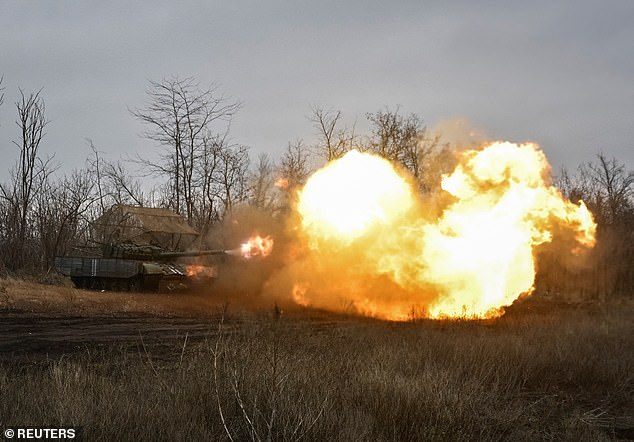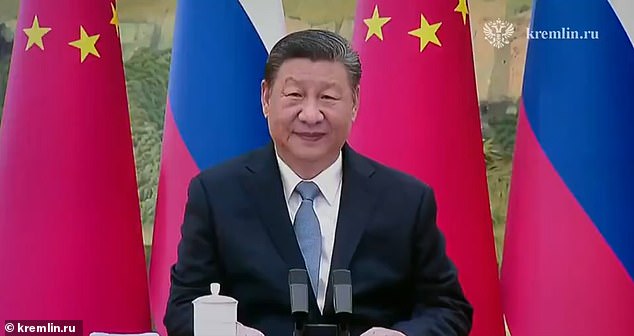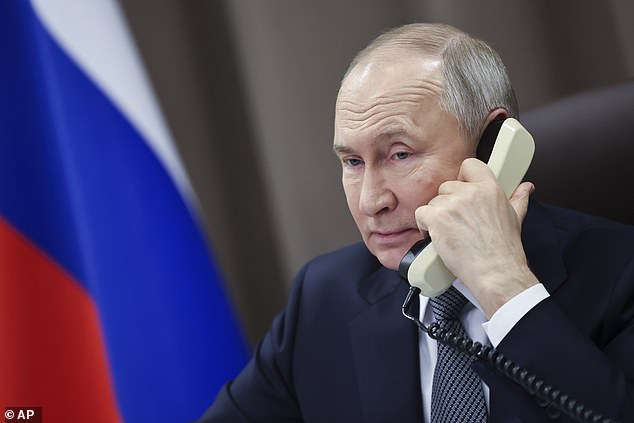Donald Trump‘s hefty tariffs on Chinese goods could convince Beijing to pressure Moscow into ending the war in Ukraine, experts have suggested.
The theory was suggested by the BBC‘s China correspondent Laura Bicker, who cited analysts in saying that Trump’s levies on Chinese products could be used for leverage and allow him to ask President Xi Jinping to help pressure Vladimir Putin.
Trump has previously said that China has a role to play in helping to put an end to the fighting, which he vowed he would secure early in his second term as President.
‘Hopefully China can help us stop the war,’ Trump said during a video address to the World Economic Forum in January. ‘They have a great deal of power over that situation.
Chinese products entering the US have been subject to additional levies of 10 per cent since Tuesday, with Trump since threatening even higher tariffs of 25 per cent on all steel and aluminum imports.
Beijing is today retaliating with its own far-reaching tariffs on US goods, dampening hopes that the two countries could strike a deal to avoid a damaging trade war.
The tariffs, which Beijing announced just minutes after the US ones were implemented, include 15 per cent on US coal and liquified natural gas and a 10 per cent tariff on American crude oil, agricultural machinery and large-engine cars.
The new Chinese tariffs cover $14 billion worth of US goods, while the tariffs announced by Trump cover $525 billion worth of Chinese goods, according to Goldman Sachs.



Despite fears of a looming trade war, many experts have considered China’s tariffs so far to be relatively limited, potentially allowing room for negotiation.
‘For now, China has exercised restraint in its countermeasures,’ Shen Dingli, a Shanghai-based international relations expert, told The Washington Post, adding that he believed the two nations could strike some sort of deal.
‘It has only targeted certain energy products exported by the US rather than implementing a full-scale, reciprocal retaliation,’ he said.
Shen added that Beijing could have instead opted for a ‘the most extreme response’ – which would be a repeat the approach of the previous trade war, where tariffs were matches symmetrically.
China sells four times as many goods to the US than it buys – a trade surplus of around $295.4 billion
Trump’s campaign promised 60 per cent tariffs on Chinese imports before he was elected. However, he revised that to 10 per cent after taking office.
He also plans to cancel a trade loophole which allows low-cost packages from China to enter the US duty-free.
In another tit-for-tat move, China also announced it would launch an investigation into US tech giant Google and the country’s Ministry of Commerce also blacklisted US fashion firm PVH, which owns brands including Tommy Hilfiger and Calvin Klein, and genetic testing firm Illumina.
While Trump may hope that economic sanctions could give him bargaining power with Beijing, some analysts have cast doubt on how much sway such tariffs and threats from the Trump administration could actually have.
Chinese business and economics expert Scott Kennedy told the BBC that ‘China is much better prepared’ this time around than it was during Trump’s first term in office.
‘Although their economy cyclically has slowed down quite a bit, their technology capabilities are a lot greater than they were before and they have diversified their trade and investment with others,’ he said.
Furthermore, warm relations between Moscow and Beijing show little sign of waning anytime soon.
Russian state media reported today that President Xi has accepted an invitation to Moscow in May, while Xi and Putin held a friendly video call shortly after Trump’s inauguration to show the continued strength of their anti-West alliance.
Trump has committed to sanctioning Moscow to help bring an end to the war in Ukraine, and has already shown his fondness for weaponizing the United States’ financial power to secure his foreign policy aims.

He ordered tariffs on key trade partners China, Mexico and Canada soon after he took office, but paused the 25-percent levies against Canada and Mexico for a month after both countries vowed to step up measures to counter flows of the drug fentanyl and the crossing of undocumented migrants into the US.
The tariffs against China went ahead, however, with products entering the United States facing additional levies of 10 percent since Tuesday.
Beijing responded with targeted tariffs on certain US products such as coal and liquefied natural gas, which will come into play today.
